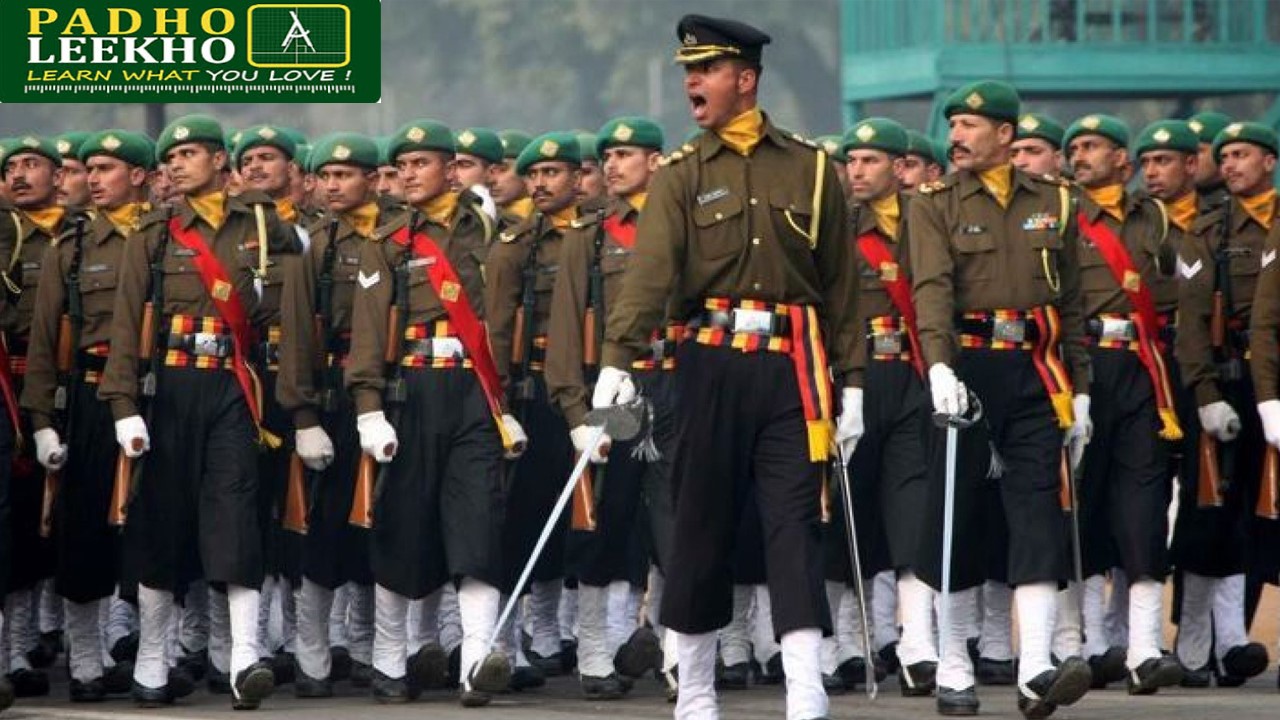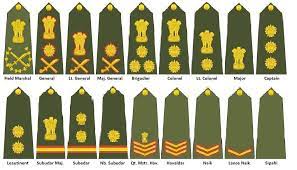NDA Syllabus 2023 – Maths, GAT, English Syllabus
Before beginning pre-commissioning training at their respective service academies, the Army, Navy, and Air Force cadets undergo joint training at the National Defence Academy (NDA), the joint services academy of the Indian Armed Forces.
Join The Best NDA Preparation Courses By Padho Leekho
The NDA is based in Pune, Maharashtra and is known for producing some of the greatest soldiers, aviators, and marines since it was the first tri-service academy in the world.
The UPSC (Union Public Service Commission) administers the NDA test twice a year, and applicants must be between the ages of 16.5 and 19 to apply. The written exam is the first step in the NDA exam selection process, followed by an interview, a medical exam, and a fitness test.
NDA Exam Pattern:
The three-hour written test consists of objective-type questions covering the following topics:
- Mathematics
- English
- General Knowledge
- Physics
- Chemistry
- Biology
- History
- Geography
- Current Affairs
The interview evaluates if the candidate is qualified for a career in the military or not. A panel of officers conducts it from the Indian Armed Forces. The medical examination is performed to evaluate the candidate’s health and fitness and to check for conditions that would render them unfit for military service. The fitness test is designed to assess a candidate’s level of physical fitness and consists of a 2.4 km run, pull-ups, sit-ups, and a beam walk.
NDA Syllabus Overview
The NDA syllabus is designed to provide cadets with a well-rounded education that will prepare them for a career in the Indian armed forces. The syllabus includes mathematics, physics, chemistry, biology, English, history, geography, political science and economics.
Mathematics: Topics covered include algebra, geometry, trigonometry, calculus and statistics. The syllabus also includes a section on problem-solving, which will help cadets to develop their analytical and critical thinking skills.
Enroll For NDA Exam Test Series By Padho Leekho
Physics: Topics covered include mechanics, wave motion, electricity and magnetism, thermodynamics and optics. The syllabus also includes a section on experimental physics, which will help cadets to develop their practical skills.
Chemistry: Topics covered include atomic structure, chemical bonding, chemical reactions, stoichiometry and thermochemistry. The syllabus also includes a section on organic chemistry, which will help cadets to develop their skills in this area.
Biology: Topics covered include cell biology, genetics, evolution, ecology and botany. The syllabus also includes a section on human biology, which will help cadets to develop their understanding of the human body.
English: Topics covered include grammar, vocabulary, composition and literature. The syllabus also includes a section on communication skills, which will help cadets to develop their ability to communicate effectively in English.
History: The history syllabus is designed to give cadets a strong understanding of the significant events and developments in world history. Topics covered include the rise of civilizations, the Renaissance, the Reformation, the Enlightenment, the French Revolution, the Industrial Revolution and the two World Wars. The syllabus also includes a section on Indian history, which will help cadets to develop their understanding of the country’s past.
Geography: The geography syllabus is designed to provide cadets with a strong understanding of the physical and human features of the world. Topics covered include the earth’s physical features, the climate, the biosphere, the lithosphere, the hydrosphere and the atmosphere. The syllabus also includes a section on human geography, which will help cadets to develop their understanding of the world’s population and settlement patterns.
Political Science: The political science syllabus is designed to provide cadets with a strong understanding of the significant concepts and theories in the subject. Topics covered include the nature of the state, the theory of the state, the political systems of the world, the political parties and the election process. The syllabus also includes a section on international relations, which will help cadets to develop their understanding of the global political landscape.
Economics: Topics covered include the nature of the economy, the world’s economic systems, microeconomics and macroeconomics. The syllabus also includes a section on Indian economics, which will help cadets understand the country’s economic development.
How To Prepare For NDA Exam
Prepare NDA with Best Techniques
1. Go through the syllabus again:
The most important part of preparation is to thoroughly review the syllabus, which is a very important part of the NDA exam preparation tips for 2023. You must know the entire syllabus of each subject, and only then can you start preparing.
2. Create a timetable:
The second and most important tip is to create a timetable. You must allocate the right amount of time to each subject and study accordingly. This will help you give the right amount of time to each subject and not miss any topic.
3. Solve previous year’s question papers:
Solving previous year’s question papers is a very important part of your preparation as it helps you understand the type of questions asked and the marking scheme.
4. Understand the exam pattern:
The fourth tip is to understand the exam pattern. Studying patterns is like studying the blueprint of the exam. It will help you understand the structure of the exam and the type of questions that will be asked. It also helps to understand the time limit and the negative marking.
5. Join a good coaching institute:
Joining a good coaching institute is essential to your preparation. A good coaching institute will help you understand the exam pattern and the questions that will be asked. They will also help you to understand the time limit and the negative marking.
6. Take mock tests:
Taking mock tests is a significant part of your preparation. A mock test is an exam a coaching institute conducts to help you recognise the exam pattern and the type of questions that will be asked. They will also help you to understand the time limit and the negative marking.
7. Understand the basics:
The seventh tip is to understand the basics, and the basics are the foundation of your preparation. If you do not understand the basics, you will not be able to understand the advanced concepts.
8. Focus on your weak areas:
The eighth tip is to focus on your weak areas. You must analyse your weak areas and work on them, which will help you improve your exam performance.
9. Practice regularly:
The ninth tip is to practice regularly. You must practice every topic regularly, and this will help you to understand the concepts better and also help you to improve your speed.
10. Revise regularly:
The tenth tip is to revise regularly. You must revise every topic regularly, and this will help you to understand the concepts better and also help you to improve your retention power.
NDA is one of the most famous defence exams in India. Thousands of students appear for this exam every year to join the Indian defence forces. The NDA exam is conducted by the UPSC (Union Public Service Commission), and the commission decides the syllabus for the exam. This exam is conducted twice a year, in April and September.























